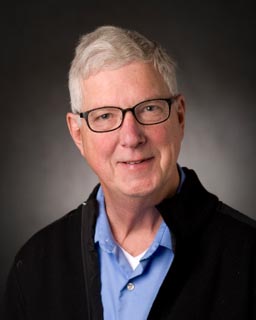Engineering professor recognized by UN for work in sustainable buildings
11/1/2021
By Tessa M. Pick
UNIVERSITY PARK, Pa. — James Freihaut, professor of architectural engineering at Penn State, was recognized by the United Nations Economic Commission for Europe (UNECE) Committee on Sustainable Energy during the committee’s 30th Jubilee Session on Sept. 22. Freihaut was honored for his contributions to the committee for the past 30 years.
The UNECE Committee on Sustainable Energy aims to provide access to affordable and clean energy and help reduce greenhouse gas emissions and the carbon footprint of the energy sector, according to the UNECE website. The committee develops normative instruments, including standards and best practice guidance in energy efficiency, renewable energy, natural gas and methane.
Freihaut has dedicated his career to improving sustainability and safety in buildings. In addition to contributing to the UNECE Committee on Sustainable Energy’s mission, framework and guidance for the building sector, Freihaut helped develop the committee’s High-Performance Buildings Initiative. This initiative focuses on disseminating its framework guidelines internationally for energy efficiency standards in buildings. With a goal of improving health and quality of life with the built environment, the initiative aims to provide resources to educate, advocate and advise transformations to high-performance buildings that are sustainable and reduce the global carbon footprint.
“It is becoming increasingly apparent that building systems will need to rapidly evolve into active nodes in the energy generation and energy exchange infrastructure not only in the United States, but in other societies as well,” Freihaut said.
As part of this initiative, Freihaut helped establish municipal centers for excellence in numerous cities across the globe — including Vancouver, Pittsburgh, Philadelphia and Brussels. These centers exchange best practices and initiate ideas among developers, contractors, architects and engineers to promote building benchmarking and energy efficiency methodologies.
“I felt quite honored to be recognized, but there is still much more work to be done in the scope of sustainability in the building sector,” Freihaut said. “We have only made a fraction of the movement that needs to be made to become truly sustainable.”
Freihaut said Penn State’s mission to be an energy leader among universities across the country and the Department of Architectural Engineering’s sustainability-focused curriculum help promote UNECE’s mission in higher education.
“The long history of the Penn State architectural engineering program provides the academic environment that readily surfaces the important sustainability issues in the building industry,” Freihaut said.
Freihaut’s research also contributes to improving the sustainability and safety of buildings. He focuses on the detection and elimination of indoor aerosol particles, such as viruses, bacteria and allergens, that can be harmful to building occupants, and establishing cost-effective low-carbon footprint energy systems for buildings and communities.




